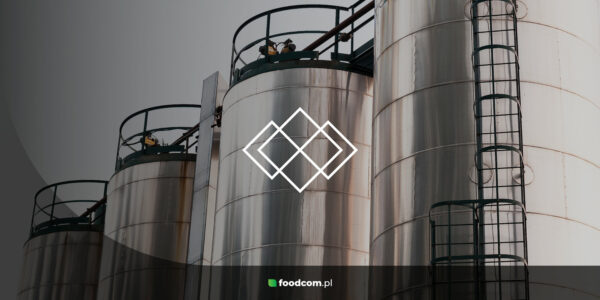Cooperation. That is the word that best describes the processes in the additives market. In this edition of the Additives Newsletter, you will read about many examples of cooperation between companies aimed at optimizing business operations, increasing profits, but also securing a better future for the world. Many of the examples are quite inspiring, it must be said.
In addition, the content of the newsletter traditionally includes a description of the main events and the situation of each commodity from the category of additives. Do not hesitate any longer and read on to learn everything you need!
Vitamin C
The market for Vitamin C, also known as Ascorbic Acid, will grow in the coming years. There is no doubt about that. The increasing use of Vitamin C in various beverages is having a positive effect on its situation. Its use in dietary supplements, medicines and cosmetics is also increasing. However, this does not change the fact that the industry also faces many challenges.
Citric Acid
The market for Citric Acid is dynamic, and the situation changes frequently. Nevertheless, the market share of this raw material is growing steadily due to its increasing use in food, beverages, pharmaceuticals, and cosmetics. Recently, its price has slightly decreased, but the increasing use and demand suggest that its price will rise in the future.
Xanthan Gum
The market for Xanthan Gum is growing, and there are many indications that a similar trend will continue in the coming years. The growing demand is mainly due to consumers’ strong interest in natural food additives. The changing habits of consumers, who are beginning to choose healthier foods regardless of price, are prompting many manufacturers to choose Xanthan Gum over other thickeners and stabilizers.
Lysine HCL
The market situation for Lysine HCL also remains dynamic. Recently, prices for this raw material have fallen slightly. Long-term forecasts remain optimistic, mainly due to its widespread use in the production of feed for various animal species.
Ferric Chloride 40%
Ferric Chloride 40% is another commodity whose market is constantly growing. Its unique properties of non-flammability, odor absorption and low water solubility allow intensive use in, among others, wastewater treatment, the importance of which is increasing every year. As a result, the demand for Ferric Chloride 40% is constantly increasing.
What else?
Europe
Evonik invests 25 million euros in methionine production
The company has invested €25 million in the development and expansion of a plant for the raw material from which methionine is produced in Wesseling, Germany. The aim of this major investment is to strengthen the global methionine production network. The methionine produced by Evonik is mainly used for the production of animal feed. In this case, it’s probably the animals who should be most pleased, right?
Fertilizer use in Ukraine is to be reduced by up to 50%
The reduction in fertilizer use for spring sowing is largely due to an increase in fertilizer prices. These changes make it even more difficult to predict the coming harvest, the size of which was already uncertain due to changing weather conditions. In addition, the plight of farmers is further exacerbated by logistics costs and the energy crisis.
French farmers have had enough
Hundreds of tractors have appeared on the streets of Paris in protest. Farmers are protesting environmental regulations that are affecting agricultural production in France. The catalyst for the ongoing protests was a recent EU court ruling that overturned a French regulation allowing sugar beet growers to use a banned insecticide. This has triggered a strong reaction, with growers fearing a further decline in plantings and the closure of sugar factories. Now we just have to wait for the next episode of this sugar-pesticide soap opera…
The Americas
Petrobras is considering resuming construction of a nitrogen fertilizer plant
Construction of a new nitrogen fertilizer plant in the city of Três Lagoas was halted in 2014. Since then, Petrobras has focused almost exclusively on the oil fields, but recently, there has been hope for a change in direction. If the plant is actually completed and put into operation, it will mean a major change not only for the structure of the company, but also for the country, which will become less dependent on imported fertilizers.
ATOME Energy has formed a joint venture with Cavendish
The newly formed company is named National Ammonia Corporation S.A., is owned by Cavendish, and is based in Costa Rica. The goal of the new company is to develop green ammonia and fertilizer projects with a focus on Central America and the Caribbean.
Brazil has ended its tax exemption on imported ethanol
This tax is currently 16%, but is set to increase to 18% starting next year. The United States, the largest ethanol producer in the world and a regular supplier to northeastern Brazil, is most unhappy about this development. Imported ethanol has been tax-free since last March, but the situation has changed after the election of a new president.
Asia & Oceania
Genesis Energy and Fonterra begin collaboration
The New Zealand-based companies have decided to work together to develop locally produced biofuel to replace coal. The two companies have formerly worked separately on biomass development, so they expect the cooperation that has begun to be very fruitful. The goal, they argue, is a sustainable future for New Zealand.
Iran’s livestock industry is in a deep crisis because of feed prices
According to experts, extremely high feed prices have led Iran’s livestock industry into its worst crisis in decades. Since May 2022, feed prices in Iran have increased sevenfold. Many farmers have been forced to slaughter their animals to limit their losses. Although the average price of poultry has more than doubled, this is not enough to compensate for farmers’ losses. The current emergency is the worst Iranian farmers have experienced in years.
An MHA production plant is to be built in the Chinese city of Ningbo in Zhejiang province
NHU and Sinopec ZRCC are behind this project. Work by the two companies on the project began in 2021, and the plant is expected to be operational by the end of 2024. If all goes according to plan, the new plant is expected to become the largest MHA production unit in the world.




![The European Union responds to US tariffs – possible retaliatory measures worth €95 billion [World News] The European Union responds to US tariffs – possible retaliatory measures worth €95 billion [World News]](https://foodcom.pl/wp-content/uploads/2025/03/News-world_22-7-600x300.png)



